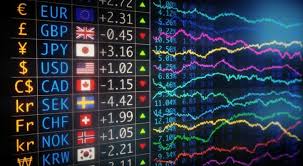
Mastering the Forex Trading Market: Strategies and Insights
Forex trading, short for foreign exchange trading, is an exhilarating financial market where traders exchange currencies with the aim of making profits. The market operates 24 hours a day, five days a week, allowing traders from all around the world to engage in buying and selling currencies. In this article, we will explore fundamental concepts of Forex trading, essential strategies, and vital tips to enhance your trading expertise. For those seeking a platform, consider forex trading acev.io, which offers valuable trading resources and tools.
Understanding Forex Trading
The Forex market is the largest and most liquid financial market globally, with an average daily trading volume exceeding $6 trillion. Unlike stock markets, which operate through exchanges, the Forex market is decentralized and trades over-the-counter (OTC) through a network of banks, brokers, and financial institutions.
At its core, Forex trading revolves around currency pairs. A currency pair consists of two currencies, where one is quoted against the other. For example, in the EUR/USD pair, the Euro is the base currency and the US Dollar is the quote currency. Traders aim to predict fluctuations in exchange rates, benefiting from changes in currency values.
Currency Pairs and Types
Currency pairs are categorized into three main types:
- Major Pairs: These pairs have the highest trading volume and include currencies like EUR/USD, USD/JPY, and GBP/USD.
- Minor Pairs: These pairs do not include the US Dollar but feature other major currencies, such as EUR/GBP and AUD/NZD.
- Exotic Pairs: Comprising one major currency and a currency from an emerging economy, exotic pairs include USD/SGD and EUR/THB.
Key Players in the Forex Market
The Forex market consists of various participants, each playing a unique role:
- Central Banks: Bodies like the Federal Reserve and the European Central Bank influence currency values through monetary policy.
- Commercial Banks: Major banks facilitate a significant portion of Forex trading by providing liquidity and executing trades for their clients.
- Corporations: Businesses engaged in international trade often hedge against currency fluctuations.
- Retail Traders: Individual traders use online platforms to trade currencies, contributing to overall market liquidity.
Forex Trading Strategies
Successful Forex trading necessitates a well-defined strategy. Here are some popular methods used by traders:
1. Scalping
Scalping involves making numerous trades within a single day to capitalize on small price movements. Traders using this technique aim to accumulate small profits that, when combined, can amount to substantial gains.
2. Day Trading
Day traders open and close their positions within the same trading day, minimizing overnight risk. This strategy demands a thorough understanding of market movements and often relies on technical analysis.
3. Swing Trading

Swing traders hold positions for several days or weeks, attempting to capture trends and fluctuations over a more extended period. This method relies less on technical analysis and more on fundamental analysis.
4. Position Trading
Position trading is a long-term strategy where traders hold onto positions for months or even years, based on anticipated economic changes or political events.
Risk Management in Forex Trading
Effective risk management is crucial for long-term success in Forex trading. Here are some strategies to help manage risk:
- Use Stop-Loss Orders: Stop-loss orders automatically close a position when a certain loss threshold is reached, helping to prevent excessive losses.
- Position Sizing: Determine the appropriate size of your trades based on your capital and risk tolerance to avoid overexposure.
- Diversify Your Portfolio: Spread your investments across multiple currency pairs to mitigate risk associated with potential market volatility.
Technical and Fundamental Analysis
Successful traders often employ both technical and fundamental analysis to inform their trading decisions:
Technical Analysis
Technical analysis involves analyzing historical price charts, trends, and patterns to forecast future price movements. Traders use various tools, such as indicators, oscillators, and chart patterns, to inform their decisions.
Fundamental Analysis
Fundamental analysis examines economic indicators, news events, and geopolitical factors that can impact currency values. Traders focus on metrics like interest rates, inflation, and employment figures to make informed predictions.
The Psychology of Trading
The psychological aspect of trading is often overlooked but plays a vital role in a trader’s success. Emotional decision-making can lead to impulsive trades and significant losses. Here are some tips to maintain emotional discipline:
- Stick to Your Plan: Develop a trading plan with specific rules and stick to it, regardless of emotions.
- Avoid Overtrading: Resist the urge to trade excessively, as this can lead to unnecessary losses.
- Keep Learning: Continuously educate yourself about the market, refining your strategies and adapting to changing conditions.
Choosing the Right Broker
Choosing the right Forex broker is a critical step for successful trading. Consider the following criteria when selecting a broker:
- Regulation: Ensure the broker is regulated by a reputable authority, providing security for your investments.
- Trading Platform: The platform should be user-friendly, providing the necessary tools for analysis and execution.
- Spreads and Commissions: Compare the costs associated with trading, as low spreads and commissions can significantly impact profitability.
Conclusion
Forex trading offers immense opportunities for those willing to invest time and effort into understanding the market. By mastering strategies, managing risks, and maintaining emotional discipline, traders can enhance their chances of achieving consistent profits. Remember that the journey in Forex trading is continuous; the more you learn, the more adept you become. Utilize resources like acev.io to further your trading education and discover tools that can support your journey.
